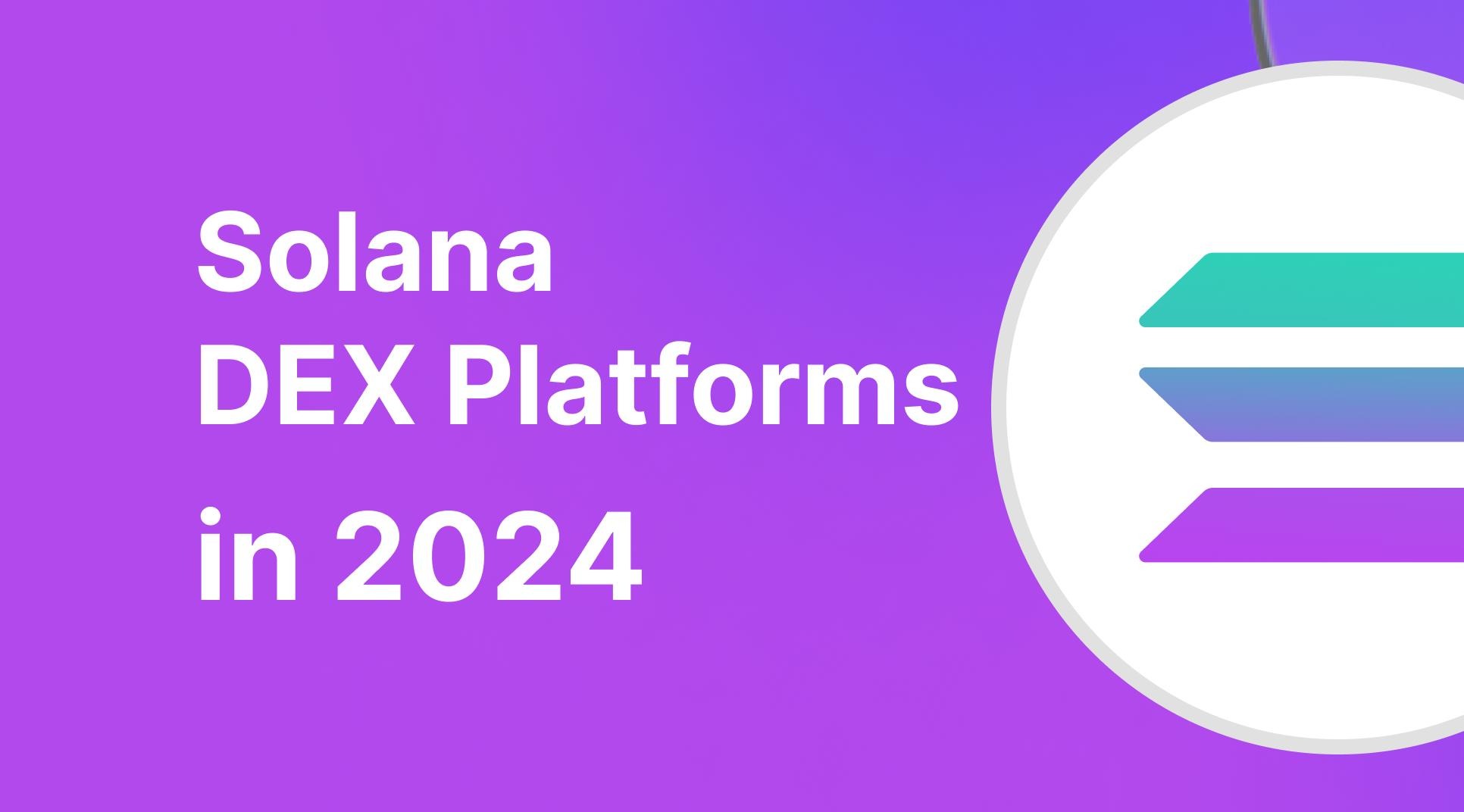
This year, the Best Solana DEX Platforms have become more popular than ever. The Solana network is growing fast. Its Total Value Locked (TVL), which means how much money is stored in its apps, has jumped to $4.8 billion. That’s 20 times more than last year! Now, Solana is one of the top blockchains in the world. Reports from DefiLlama show that people are trading more on SOL-based decentralised exchanges, which are platforms where users trade crypto without needing a middleman.
People love Solana because it has very low fees and fun Solana-based meme coins like Dogwifhat and Bonk. Its DEX platforms now have even more trading than Ethereum. Also, SOL (Solana’s coin) has gone up over 768% in one year. That’s why traders and investors are paying close attention to Solana DEXs. Let's now look at the leading Solana DEX platforms for 2024.
Solana is well known for being very economical and speedy.It was launched in 2017 and is now loved for its speed and large DeFi system. Solana’s coin, SOL, is doing great—its market value is about $79 billion, and people trade about $2 billion of it every day.
Solana can handle thousands of transactions every second. It uses PoH(Proof of History) and PoS(Proof of Stake) systems, which makes it faster than Ethereum. Each transaction costs just 0.00064 SOL, so it’s very affordable. Developers can also build apps right on the Solana blockchain, making it a good place for growing new tools and services.
Let’s look at the top Solana DEX platforms. These are picked based on how many people use them, how much money they trade, and how well they work:
Jupiter is the biggest DEX on Solana in 2024. It has about $900 million in daily trades. It offers special tools like Limit Orders and Dollar-Cost Averaging. Users can trade with up to 100x leverage. Jupiter also works with other apps like Wormhole and Mayan Finance to help users move tokens across different blockchains.
Raydium mixes an AMM (Automatic Market Maker) with a special order book from Serum. It has a 0.25% trading fee and more than $500 million in daily trades. Raydium also supports NFTs, launch programs for new projects, and special token sales called Initial DEX Offerings (IDOs).
Orca is easy to use and ranks third in Solana swap DEXs. It trades more than $360 million each day. It uses a smart pricing system to help users get fair deals. With its CLAMM model and DAO system, Orca is one of the top picks for traders.
Lifinity focuses on strong data and better pricing by using the PMM method. It uses Pyth’s data feeds and supports staking and liquidity mining. Its daily trades go over $100 million. It also allows users to trade across different blockchains.
Saros has tools like SarosSwap, SarosFarm, and SarosStake. It also has its own token called SAROS. This platform is like a "Super App" for trading and making payments in the Solana ecosystem.
Drift offers a trading place without needing a middleman. It supports features like perpetual swaps and lets users trade with up to 10x leverage. With over $300 million in TVL, Drift mixes the best parts of both centralised and decentralised trading.
Zeta Markets gives advanced tools like futures and options. It’s great for big investors who want up to 10x leverage. It also uses pricing tools from Pyth and an order book from Serum for fast trades.
Saber is good for trading stablecoins and has over 80 trading pairs. Its token, SBR, helps in platform decisions through governance. Saber tries to make stable trading with fewer risks.
Soldex uses AI to help users trade better. It offers automated trades and market analysis. People pay fees and vote using the SOLX token.
FluxBeam is a Telegram bot that helps users trade Solana and other tokens. It supports tools like token sniping, copy trading, and dollar-cost averaging. It connects with Raydium and Meteora to offer better trading for new coins.
Solana DEXs are safe, private, and open to everyone. But there are still some risks. Sometimes, smart contracts can have bugs that hackers can use. So it’s important to check each platform’s safety rules.
Also, because DEXs are not controlled by governments, scams can happen. That’s why research is important before using any DEX. Sometimes there’s not enough money for smaller coins, which can cause slippage—where the price changes quickly while trading—making prices jump or fall fast.
Some platforms may be hard to use, especially for beginners. That’s why it’s good to choose ones with simple designs and helpful guides.
Solana is fast, has low fees, and is growing fast. That makes it a great place for traders, developers, and investors. But it’s still important to be careful, learn about each DEX, and stay safe. With the Best Solana DEX Platforms, users can enjoy new ways to trade in 2024!

Dharmendra Vishwakarma is an experienced English News Writer and professional content creator with a strong focus on cryptocurrency, blockchain, and digital asset reporting. Associated with Coin Gabbar, Dharmendra delivers accurate, engaging, and insightful articles that help readers stay updated on the latest developments in the crypto world. Passionate about storytelling and research, he combines thorough analysis with easy-to-understand content, making complex topics accessible. Outside of writing, Dharmendra enjoys reading books, which fuels his creativity and broadens his perspective. His work reflects professionalism, clarity, and a dedication to delivering value to readers and the wider crypto community.